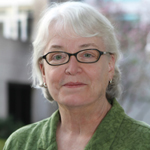Vulnerability and Resilience: An Emerging Paradigm
- Location
- Law Building Lecture Theatre 2
- Dates
- Monday 14 September 2015 (16:00-17:00)

Martha Fineman is the Robert W. Woodruff Professor of Law at Emory University and will be hosted by Professors Sean Coyle and Marie Fox from Birmingham Law School.
Martha Fineman is an internationally renowned scholar of the highest standing, whose work addresses complex and boundary-transcending themes of human vulnerability and resilience.
Prevalent political rhetoric imagines a liberal, liberty-seeking legal or constitutional subject, spawning mantras of “individual choice” and “personal responsibility” and generating suspicion of state activity or intervention. By contrast, a vulnerability analysis constructs a more comprehensive and complicated vision of political or legal subjectivity, one that makes it clear that achieving social justice in the 21st Century will require a more active and responsive state than we have currently. A vulnerability approach does not rely on abstract and inevitably contested legal principles, such as liberty or dignity to define what it means to be human or have legal subjectivity. Rather, it brings bodily, material, and institutional contexts into discussion by focusing on vulnerability and dependency, which are posited as universal and inherent in the human condition.
Often narrowly understood as merely “openness to physical or emotional harm,” vulnerability should be recognized as the primal human condition. As embodied beings, we are universally and individually constantly susceptible to injury, harm, and dependency over the life-course. The inevitability of vulnerability means that there is no position of invulnerability; there is only the possibility of resilience. We gain resilience when we have accumulated sufficient resources to allow us to adapt to, ameliorate, compensate for, or contain our vulnerability. Resilience also allows us to take advantage of opportunities as they arise, giving us the confidence necessary to take risks. Significantly, we are not born resilient. Rather, we gain the resources that give us resilience over time and within and through social institutions and relationships.
Recognition of embodied vulnerability and the social production of resilience reveals that, far from being autonomous and independent beings imagined in liberal theory, humans are inescapably embedded in society – dependent on its institutions, conventions and cultures. In this sense, human vulnerability should be understood as the precursor for social and familial institutions and relationships, which are the positive manifestations of embodiment. These institutions, like all collective human relations, needs rules. Rules operate as constraints on individuals for the good of the collective, be that collective in the form of a family, a corporation, an economy, a community or a state or governmental entity. Socially necessary and legitimate rules are forged and the consequences of relationships defined and enforced by the state, through law. A vulnerability analysis demands that in fashioning and implementing those rules the state be responsive to the needs of a legal subject who is both an embodied being and embedded in social relations. This requires recognition and monitoring the operation of social institution and relationships and attention to the ways in which privilege and disadvantage are produced within them.
The event is free to attend but registration is advised.